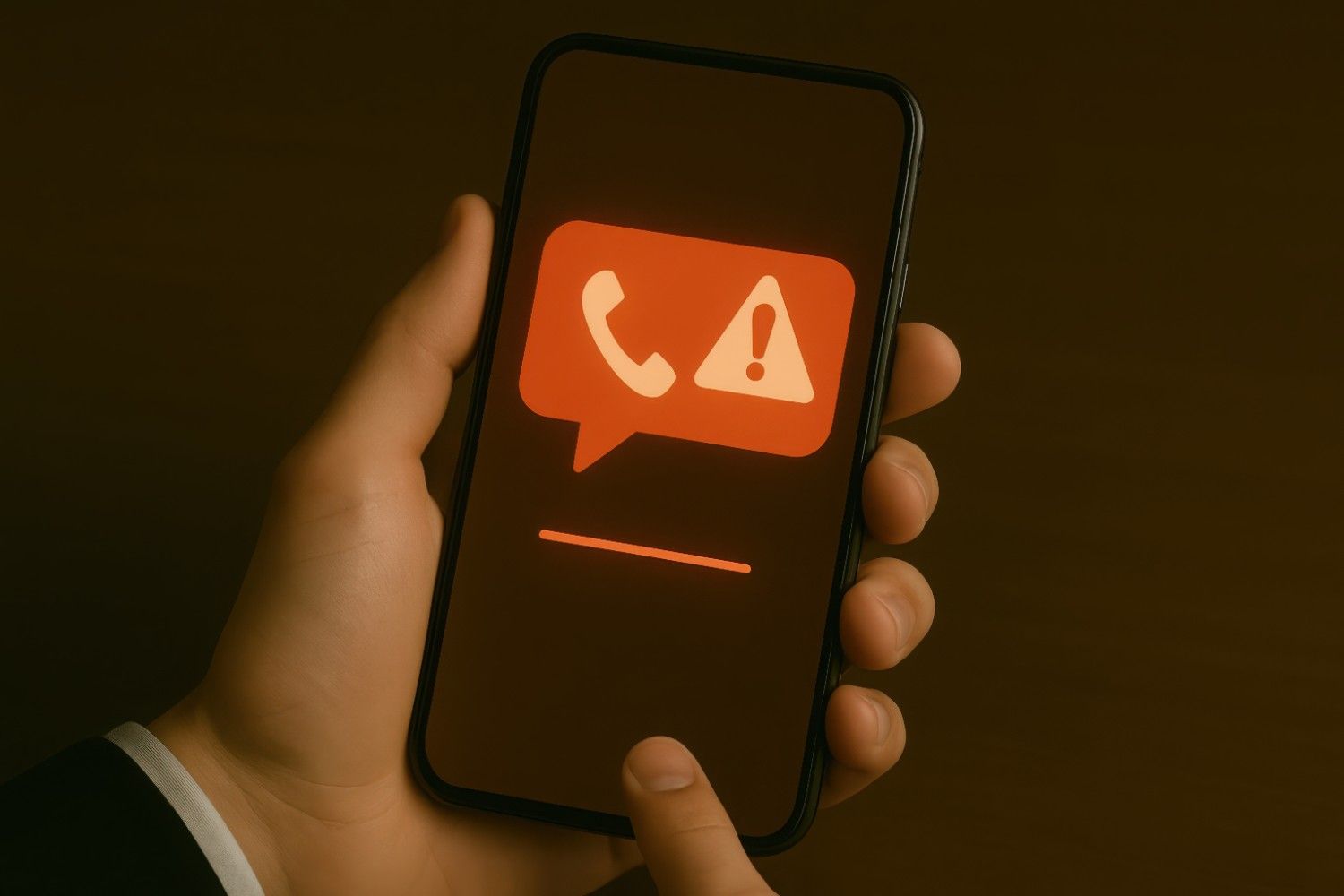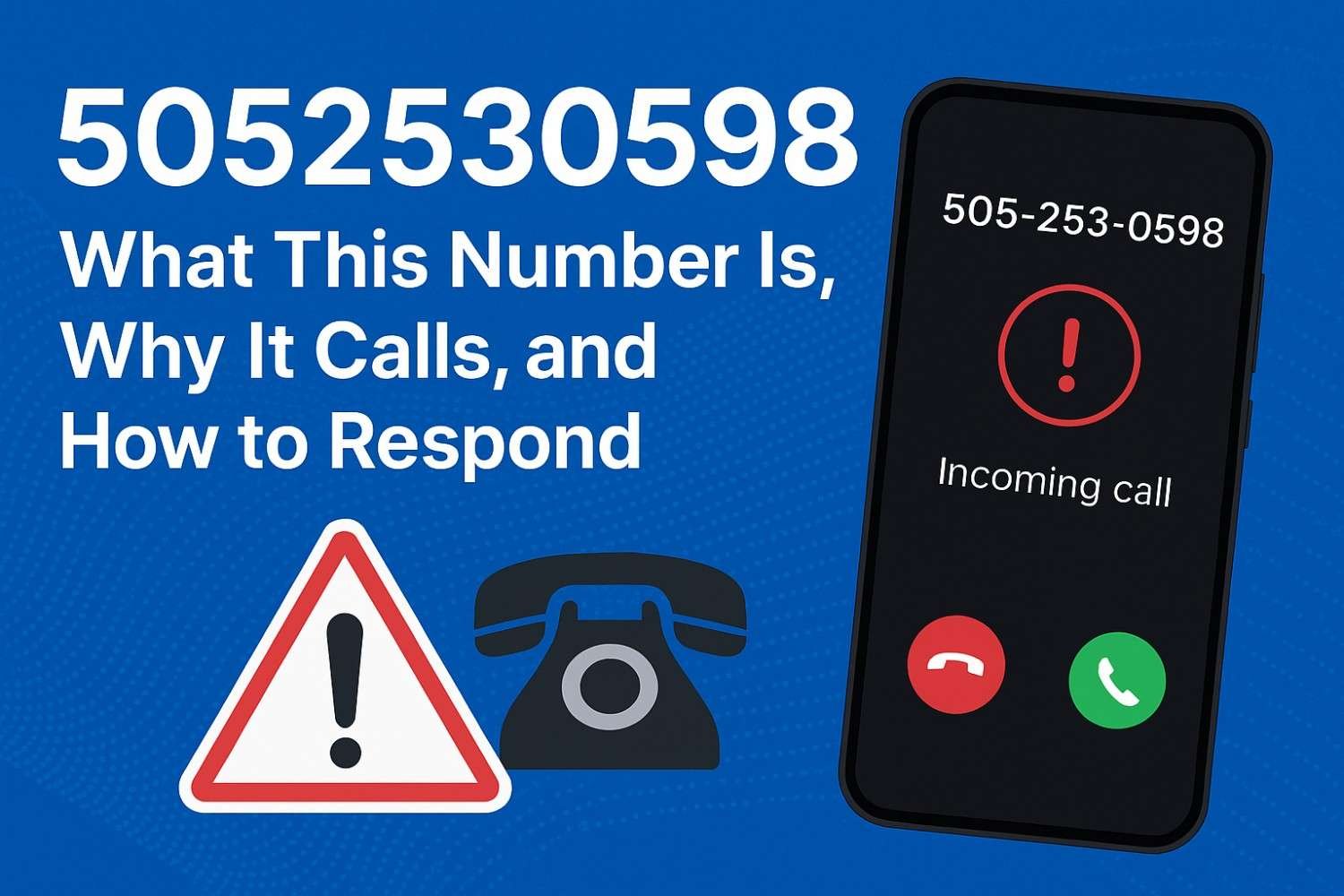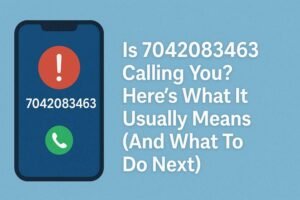If you’ve been getting calls from 5052530598, you’re not alone. I went down the rabbit hole to see who’s behind it, whether it’s legit, and what you should do next. Here’s a clear, fact-checked guide that pulls from top phone-reporting sites and consumer resources—without the fluff.
What is 5052530598 and who’s likely calling?
Multiple call-reporting platforms flag (505) 253-0598 as a high-volume spam/collection number. RoboKiller lists it as “Scam,” with over 53,000 total calls and hundreds of user reports, which indicates widespread nuisance or collection activity.
YouMail’s voicemail transcripts tied to this exact number frequently reference “Community/Comenity Capital Bank” and “Community Bank,” typically in a collections context. That suggests a debt-related or debt-style callback request—though users also report possible spoofing (someone pretending to be a bank).
Truecaller entries show the carrier as Level 3 Telecom of New Mexico and geolocation around Albuquerque, NM (consistent with the 505 area code). User notes mention “community bank” and store card collections. Remember: carrier and location don’t prove the caller’s true identity—only the routing and number block.
Is 5052530598 always a scam?
Not necessarily—but treat it like unverified until you confirm. Collections-style scripts can be legitimate or spoofed. Some users say the number robo-dials and transfers to a collector; others say the caller asked about accounts they don’t have. These are classic red flags to pause and verify before sharing any personal data.

Where is the 505 area code located?
Area code 505 serves New Mexico (including Albuquerque, Santa Fe, Gallup, Farmington). That fits the Truecaller carrier data above—again, it aligns with routing but doesn’t authenticate the caller.
How should you handle a call from 5052530598?
1) Don’t share information on the spot
If someone claims to represent Comenity/Community/Capital Bank (or any lender), don’t confirm your SSN, DOB, or account details over an unsolicited call. Hang up, then independently locate the official number on your card or the institution’s website and call them back. YouMail’s research note explicitly warns that someone may be pretending to be the bank.
2) Verify the debt (if they say you owe)
If you genuinely think there could be a balance, ask for a validation notice and the creditor name, mailing address, and account reference. Debt collectors are generally required to provide this; if they refuse, that’s a red flag.
3) Block and report if it’s nuisance or fraudulent
RoboKiller indicates the number has been blocked frequently by users, which mirrors its negative reputation. You can block the number on your phone and report it to your carrier or a call-filtering app.
4) Know your rights
Consumer law firms publicly note that persistent, harassing collection behavior may violate consumer-protection laws (like the FDCPA in the U.S.). If you’re bombarded with repeated calls, consider documenting dates/times and exploring legal guidance.
Could it be a “one-ring” or callback trap?
If you see very short missed calls intended to get you to call back, that’s a known tactic called a one-ring scam. While this number is largely reported as collections-style, it’s smart to know the pattern: scammers ring once, then hope you return the call. The U.S. FTC warns consumers not to call back unknown missed calls—especially from unfamiliar numbers.
What if 5052530598 says it’s Comenity/Community/Capital Bank?
Comenity (and similarly named institutions) service many store-branded credit cards, so some calls can be legitimate—others spoof the name to sound credible. The safest path is always independent verification: check your card statement or the bank’s official site for a published phone number and call that number directly. YouMail logs specifically reference messages invoking these bank names, but user comments also flag possible mismatches and spam.
Is 5052530598 linked to other similar numbers?
Neighboring numbers in the 505-253-05xx range are also reported on phone-lookup sites and consumer-law pages (e.g., 505-253-0594). Spammers and collectors often use number blocks or rotating lines. Treat similar patterns with the same caution and verify directly with the alleged creditor.

Frequently Asked Questions
1. Is 5052530598 a verified Comenity/Community Bank line?
There’s no authoritative public listing that confirms this number as the bank’s official customer line. User reports frequently mention these banks in voicemail scripts, but that can be legitimate collections or spoofing. Verify by calling the number on your card or the institution’s website—never the one given in a voicemail.
2. I don’t have a card with them—why am I getting calls from 5052530598?
It could be a wrong number, skip-tracing, or spoofing. Many users say the caller asked about accounts they don’t own. Don’t provide personal info; block the number and, if calls persist, consider filing complaints with your carrier or relevant regulators.
3. What’s the safest way to check if the debt is real?
Ask the caller for a validation notice and the original creditor details, then independently contact the creditor using a verified number (statement or official site). If the caller refuses or pressures you, end the call—it’s a hallmark of shady operations. (General best practice supported by consumer-protection guidance.)
4. Will blocking 5052530598 stop all future calls?
Blocking helps, but call centers often rotate numbers. Consider enabling carrier spam filters or third-party call-blocking apps. RoboKiller’s analytics show substantial volumes and user blocks for this number, which means filters may help cut the noise.
What’s my bottom-line playbook for 5052530598?
If 5052530598 rings you, assume unverified until proven otherwise. Don’t share data, request validation, and call the supposed creditor back using a published, official number. If it’s harassment or spoofing, block and report—and remember that consumer-protection laws exist to curb abusive practices. You’ll keep your identity and your wallet safer by verifying on your terms, not theirs.


















